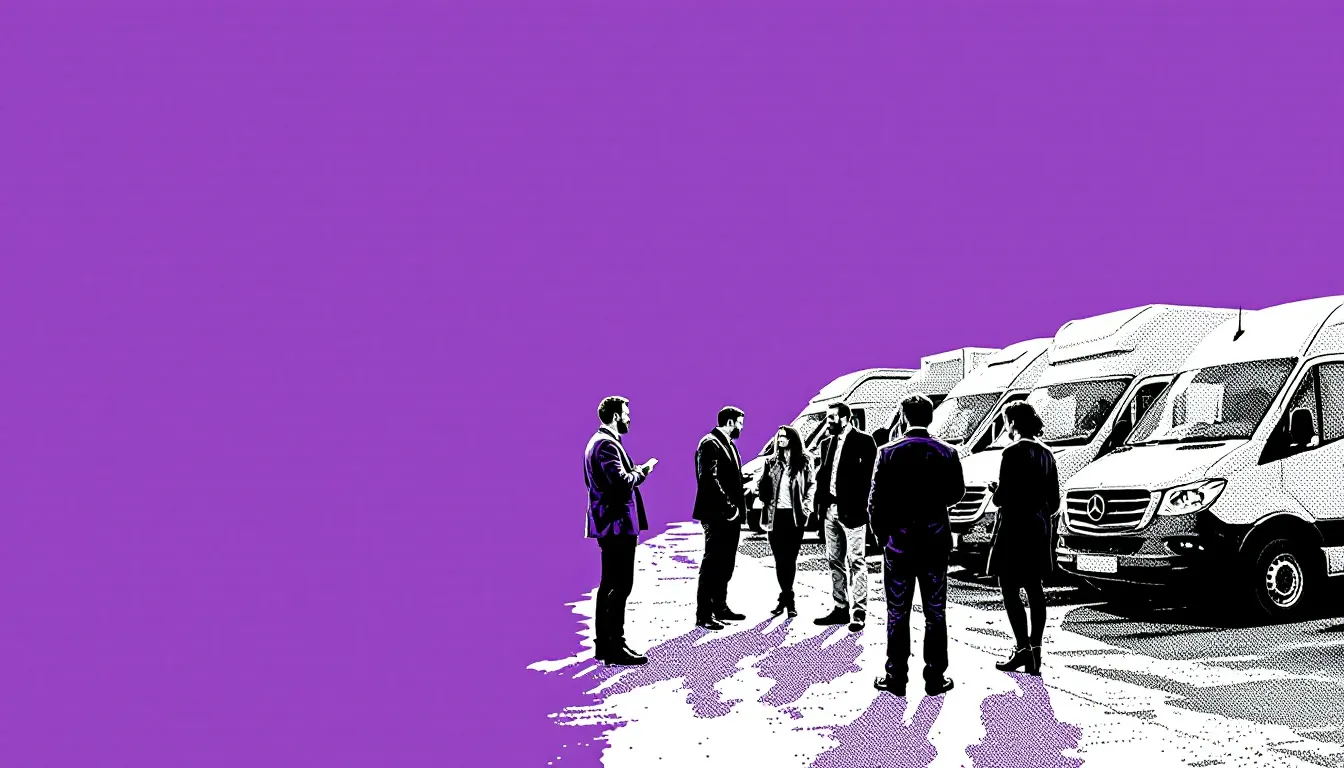
Leasing vs. Buying: A Beginner's Guide

Who Will Benefit Most From This Guide?
If you’re thinking about getting a new van, truck, or fleet car for your UK business—whether you’re a self-employed tradesperson or managing a growing team—this guide’s for you. We’re here to help if you:
- Own a small or medium-sized business
- Are a startup needing your first commercial vehicle
- Wonder if leasing or buying will save you money
- Feel unsure about all the finance jargon
What’s Leasing and Buying? Simple Definitions
- Leasing means renting a vehicle for a set period, usually 2-5 years, with monthly payments and an option to upgrade or return at term’s end.
- Buying means purchasing a vehicle outright or through a finance agreement, then owning it once you’ve paid off any finance.
Why Does This Decision Matter?
Choosing between leasing and buying affects your business cash flow, growth potential, tax, and even the image you present to clients. The right choice can make life easier and save you pounds. The wrong choice can tie up funds you’d rather invest elsewhere.
How Does It All Work? Let’s Keep It Simple
Leasing: - Pick your vehicle, choose your lease period, agree monthly payments.
- At the end of your lease, you hand back the vehicle (or sometimes buy it).
- Maintenance may be included.
- No big upfront payment.
Buying:
- Pay cash upfront or use a finance agreement (like Hire Purchase).
- Make regular payments until you own the vehicle.
- You’re responsible for all running costs and maintenance.
- Once paid off, the vehicle’s yours to keep, sell, or part-exchange.
Real-Life Example: Meet Jamie the Plumber
Jamie runs a busy plumbing and heating business in Leeds. He needs two vans for himself and his apprentice. He’s not sure whether to lease or buy. After crunching the numbers:
- If he leases:
- Lower upfront cost
- Gets newer vans every few years
- Monthly outgoings are predictable
- No worries about selling old vans
- If he buys:
- Pays more upfront or takes a bigger finance loan
- Has assets he owns once paid off
- Vans lose value over time (depreciation)
- Needs to budget for repairs and selling later
After considering his cash flow, Jamie chooses to lease both vans, so he can redirect cash into marketing and tools. Easy!
Jargon Buster: Key Terms Explained
- Depreciation: The amount your vehicle loses value over time.
- Balloon payment: A large final payment to own the vehicle at the end of some lease agreements.
- Hire Purchase: A way to buy by spreading the cost, with ownership after the last payment.
- Operating Lease: Lease type where you never own the vehicle.
Frequently Asked Questions
1. Is leasing always cheaper?
Not always. It depends on your mileage, how long you keep vehicles, and business needs.
2. Do I need a perfect credit score to lease?
Not necessarily, but stronger credit helps you get better deals.
3. Can I lease used vehicles?
Sometimes! Some providers offer used vehicle leases.
4. Are tax benefits the same for leasing and buying?
There are different tax treatments. Always check with your accountant to know what’s best for you.
5. What happens if I go over the agreed mileage on a lease?
You might have to pay extra fees, so keep an eye on your mileage.
Ready to Make Your Next Move?
Choosing between leasing and buying doesn’t have to be stressful. If you want tailored advice, get in touch with Kandoo today. Let’s find the best finance solution for your needs, so you can get on the road and grow your business with confidence.
Buy now, pay monthly
Buy now, pay monthly
Some of our incredible partners
Our partners have consistently achieved outstanding results. The numbers speak volumes. Be one of them!


SUSSEX TILE AND STONE

PECASA LTD










